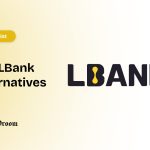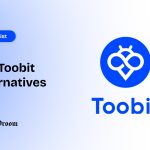A recent panel discussion brought together leading experts from across different sectors such as; venture capital, crypto, and machine learning. In this discussion, they shared their perspectives on the intersection of AI and Web3. On the basis of their analyses, we research their insights and check how they think AI and Web3 will transform industries and in the end enhance democracy for us all.
The convergence of artificial intelligence – AI and Web3 represents one of the most significant developments shaping the future of technology and our society as a whole. As these powerful innovations intersect, they raise more important questions about trust, governance, and content production. In this article, we are going to take a look at how these technologies could disrupt or work together in a new technological formation.
Trust in Content Production
A major key theme where AI and blockchain can join arms is creating more trust, which is needed in content production and digital media. As AI and Web3 booms, and everyone with a right mind can generate more content within a heartbeat, the authenticity and verification of these giant outputs are becoming more crucial than ever.
Similarly, tracing the ones who put the date in also called content creators needs to be put to the test. Can we all agree that blockchain technology can aggregate the reputation of these creators across channels of media and provide correct context and fact-checking where necessary?
Improving Democracy
The potential to upgrade democracy also emerged as a theme in the discussion. We see that despite challenges, incorporating Ai and Web3 thoughtfully could enhance representation, coordination, and execution.
The Future of Finance
This is the way we know DAOs operate and may become more functional by integrating AI and web3 for organizational tasks instead of the human-flawed approach of organizations as we know it. If with all these new elements there is a way to reimagine societal organization, we have to consider or experiment.
The Need for Open, Decentralized Computing
While AI and Web3 offers tremendous promise in all sectors and for many lives, the current computing limitations constrain its effectiveness for large-scale modeling. What we mean by this is that centralized cloud solutions lack censorship resistance. Meaning that every big tech company can censor as it pleases and decide what the output will be, by writing the underlying code.
Although blockchains facilitate verification via smart contracts, they lack the scalability for generalized computation, which is done by AI systems. This is where open, decentralized computing comes in. A system where we could leverage crypto incentives into an enterprise-grade architecture, which enables the best of both worlds.
The scalability of the AI systems with the uncensorable nature of the blockchain. And with the end result a censorship-resistant and significantly cheaper product ready to take over the world…in a good way.
The Potential Benefits of AI and Web3
As seen above, the proponents that decentralized Ai and Web3 can bring to the table could distribute economic gains more evenly, by compensating contributors if we look at it from a decentralized structure. Open participation could make AI and web3 more reflective of diverse human values, which is better than the profit-driven views of big corporations invested in AI.
Again, the decentralized aspects of control may limit the misuse of AI for state surveillance and psyops and military applications. The manners where companies could tap into and extract collective intelligence could be reduced by withholding artificial general intelligence manifesting in a single entity.
With a transparent infrastructure and open APIs, developers can also build unstoppable applications and compose new services rapidly, ready for massive use. Together with open ecosystems, the incentives are aligned toward rewarding creativity and cooperation.
Causes for Concern
But that being said, critics of this new crossing of pathways of emerging technologies, worry about the influence that large centralized entities have over decentralized ecosystems. If crypto or blockchain-based projects were to work and collaborate, would they take the side of their core principles or just be bought out? Critics argue crypto was created specifically to counter big tech monopolies, but the reality is that big tech companies shape industries via their platforms.
Not only this, you can tell that truly democratizing access to participate meaningfully in decentralized AI requires solving deep divides in skills, connectivity, and hardware capabilities globally. In essence, decentralized solutions are no panacea to technology’s complex socioeconomic challenges.
There are also concerns that misinformation, bias, and abuse could thrive without accountability measures in decentralized environments. Who guards our guards? Or which algorithm writes our algorithm?
More Nuanced Perspectives
Time will tell what will happen, but we can say that completely decentralized AI likely probably has its limitations, but elements of decentralization can be incorporated thoughtfully. A hybrid approach that recognizes the strengths and weaknesses of both centralized and decentralized models may realistically achieve the best outcomes.
In the end, the optimal path likely involves thoughtfully combining elements of both centralized and decentralized systems and we as the crypto and tech community should avoid being swayed by either utopian visions or dystopian fears. With pragmatic and open-minded innovation perhaps, we can harness these technologies responsibly. The way forward requires an understanding of the promises and risks and then choosing to carefully build solutions that balance them.
Conclusion
In summary, we see that the path illuminates as we walk on it, and we see that the ‘new’ convergence of Ai and Web3, and the decentralization aspects has constituted a tremendously promising avenue already for solving complex societal challenges and the way we use the digital world in our day to day lives.
Could it be that this technology stack overcomes its limitations by using both AI and blockchain-based smart contracts? We think that unleashing a collaborative innovation built on open, decentralized systems, can potentially address the most critical issues we as humans have to deal with, ranging from climate change to healthcare to living together in a society. But let us not forget the mismanagement we know exists today and let us not risk blindly, as we must carry the risks of this new frontier shift carefully.


















